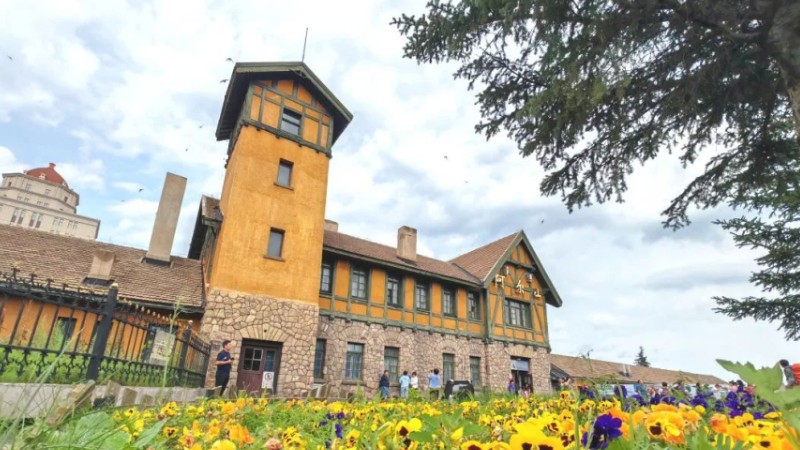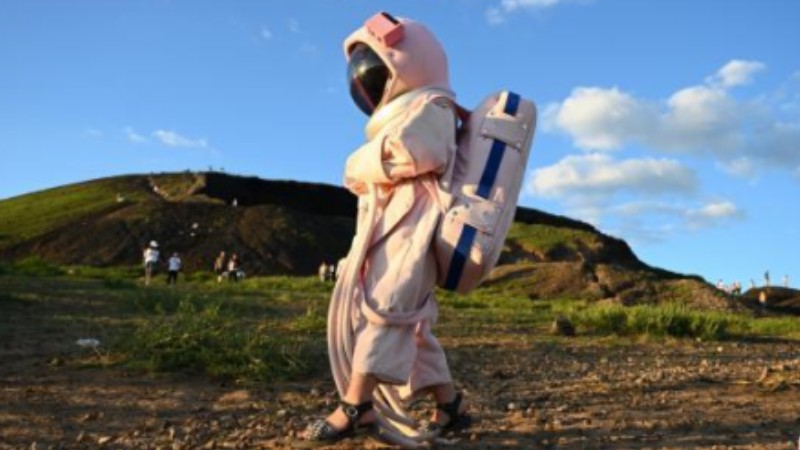Medical aid gives Xinjiang's healthcare a boost
URUMQI, Aug. 21 (Xinhua) -- A 72-year-old patient surnamed Gao noticed blood in her urine. This month, she was diagnosed with kidney cancer in a hospital in Aksu Prefecture, northwest China's Xinjiang Uygur Autonomous Region.
Luckily, the surgery with high difficulty was successfully conducted with the cooperation of local doctors and medical staff from east China's Zhejiang Province.
"Now I feel good. My family and I planned for the worst and did not expect to walk the next day after the operation," said Gao.
In an operating room, a small hole was opened in the patient's belly, and Ma Dadong, director of urology of the First Division Hospital of Xinjiang Production and Construction Corps (XPCC), inserted a minimally invasive scalpel to remove the cancerous kidney and ureter on a single side, and a part of the bladder.
Hu Zhenghui, a medical staff from Zhejiang Province, gazed at a screen showing the internal structure of the abdomen to control risks, ensure the accuracy of the operation, and prevent massive bleeding.
"Although traditional open surgery can provide a better view, we chose a minimally invasive surgery, which features more accuracy, smaller wounds, and less blood loss. Meanwhile, it is also safer, as we do not have to move the patient back and forth," said Hu. He said the operation is a level-4 surgery, which is of the highest risk in China's classification.
Hu worked in the First Affiliated Hospital, Zhejiang University School of Medicine. He came to Aksu this May and will work here for over a year in a medical pairing assistance program. Initiated in 2016, the program aims to give Xinjiang healthcare a boost.
"Thanks to the guidance of doctors from Zhejiang, I can perform operations myself," said Ma. He said experts have brought local doctors ideas, brainstorming, and advanced surgeries through regular case discussion and surgical teaching.
According to Chen Dajin, a medical worker from Zhejiang and head of the First Division Hospital of XPCC, since the pairing assistance program was launched in 2016, the number of level-4 surgeries, that have been conducted in the hospital, has increased by nearly 500 percent.
Chen said departments of reproductive medicine, neonatology, and emergency surgery have been established during the period, and other departments have also seen development.
Chen and his fellow medical experts in the pairing assistance program are also helping rural patients and hospitals at the grassroots levels through a program allying big and small hospitals and relevant doctors in Aksu and the First Division of XPCC.
Yi Jianhua, an expert from Zhejiang now working in the emergency department of the First Division Hospital of XPCC, said: "Emergency treatment has a tight schedule. Through the alliance, doctors in big hospitals can guide the rescue work of grassroots hospitals remotely."
Yang Xiaolong, director of the emergency department of Wensu County People's Hospital in Aksu, holds a similar opinion.
"Taking a severe heart attack, for example, we first dissolve the patient's blood clot and inform relevant specialists about the conditions before transferring the patient to big hospitals. In this way, they can make preparations before receiving patients," said Yang, adding that time can be saved and the rescue rate improved.
Yang said that through remote or face-to-face communications among members of the alliance, doctors in his department can better deal with more types of traumas. "Ordinary diseases can be treated at our hospital, while intractable diseases can be treated at big hospitals. This is convenient for patients and their accompanying family members."
About 1,000 medical staff are members of the alliance covering 21 medical fields. Members are engaged in regular pathological discussion and surgical teaching and also offer free clinics to people in remote villages and townships.
According to Zhang Ting, also a medical worker from Zhejiang and deputy head of Wensu County People's Hospital, the alliance is like a talent pool with experts in various fields. "The specialist alliance is not only for surgery or rescue support but also for members to share treatment and management ideas."
Photos
 Groom in C China's Luoyang picks up bride with electric moped fleet
Groom in C China's Luoyang picks up bride with electric moped fleet Small railway station in N China's Inner Mongolia attracts throngs of tourists
Small railway station in N China's Inner Mongolia attracts throngs of tourists 'Space suit'-clad tourists immerse themselves at extra-terrestrial-like landscape in China's Inner Mongolia
'Space suit'-clad tourists immerse themselves at extra-terrestrial-like landscape in China's Inner Mongolia In pics: Autumn harvest in SW China's Sichuan
In pics: Autumn harvest in SW China's Sichuan
Related Stories
Copyright © 2023 People's Daily Online. All Rights Reserved.





